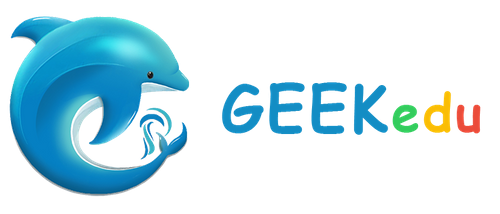Designed for beginners, this level teaches the basic fundamentals and design principles of Python, with the help of Turtle graphics and PyGame. This includes: variables, conditional statements, loop basics, and functions.

Designed for beginners, this level teaches the basic fundamentals and design principles of Python, with the help of Turtle graphics and PyGame. This includes: variables, conditional statements, loop basics, and functions.
These concepts are transferable to any other programming language. Throughout the course, students will create projects in order to apply the concepts they have learned, and to solidify their knowledge.
This course typically takes 3-6 months to complete. This depends on the student's experience and how fast they can master the concepts and the knowledge. Our instructors move at the pace of the student, it may take extra time for some students to reinforce what they have learned.
Curriculum:
Chapter 1: Variables, Operators and Input
Students will learn about the basic variables: Integers and Floats. Additionally, they will learn how to print to the screen and use mathematical operators, in order to create a Calculator project!
Chapter 2: Input and More Variables
work with Strings and Boolean variables, and learn how to take user input. Students will use these to create a Greeting Program.
Chapter 3: Drawing with Turtle
Students will learn how to use the concepts learned in chapters 1 and 2, and use it to create drawings using Python with Turtle! They will create a beautiful house drawing or a drawing of their choice.
Chapter 4: Conditionals Part 1
Students will understand boolean expressions, and how to use them with if and else statements in order to create dynamic programs! At the end of the chapter, students will use this to create a Quiz project.
Chapter 5: Conditionals Part 2
Chapter 5 dives deeper into conditionals, featuring nested if statements and using logical operators. This allows for more modular and clean code! At the end of the chapter, students will create a Categorizing project.
Chapter 6: Decisions with Turtle
Using what they've learned in Chapters 4 and 5, students will create more dynamic Turtle drawings. Additionally, we will talk about coordinates, and manipulating the turtle across the 2d canvas.
Chapter 7: Loops Part 1
Students will learn how to loop things using a while loop. At the end of the chapter, students will create a final project.
Chapter 8: Lists
Chapter 8 focuses on the list data structure. Students will learn how to create a list, and modify and remove elements.
Chapter 9: Loops Part 2
After learning lists, students will learn how to use the for loop, how to iterate over sequences, and understand its differences from the while loop.
Chapter 10: Fireworks with Turtle
Chapter 10 uses all the concepts learned in the previous chapters and introduces the random module, in order to create a fireworks animation project.
Chapter 11: Functions Part 1
Students will be introduced to void functions, how to define functions, and how to call them.
Chapter 12: Functions Part 2
Chapter 12 dives deeper into functions. Students will learn about non-void functions, return values, and parameters and arguments.
Chapter 13: Events with Turtle
Students will wrap up turtle by creating a turtle program that responds to user events. The turtle will follow inputted commands and listen for keyboard events.
Chapter 14: Coin Game
To wrap up Level 1, students will create a Coin Game using Pygame. This allows students to utilize what they've learned so far and checks their understanding in a fun and creative way. At the end of the chapter, students will have created a fully customized Coin Game!
Geekedu was founded on the idea that every kid should have the opportunity to learn Computer Science and Mathematics, regardless of their background or finances.
Classes are designed to nurture critical thinking and problem-solving skills while keeping children excited and engaged. Our team of qualified instructors is specially paired with each child to provide the best learning experience possible.
© 2025 coursetakers.com All Rights Reserved. Terms and Conditions of use | Privacy Policy